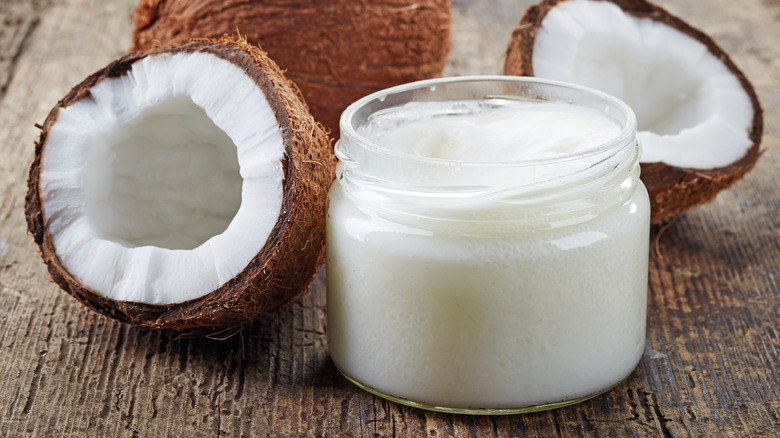Can Coconut Oil Replace Shortening? Exploring Substitution Options
If you're curious about swapping out shortening in your recipes, coconut oil may just be the perfect alternative. In this comprehensive guide, we'll delve into the question: can coconut oil replace shortening? Let's explore the possibilities and considerations when substituting coconut oil for shortening in your cooking and baking endeavors.
1. Understanding Coconut Oil as a Substitute:
Coconut oil is a versatile ingredient renowned for its unique flavor profile and various health benefits. When used as a substitute for shortening, coconut oil adds a subtle tropical taste and a hint of sweetness to your dishes. It's solid at room temperature, making it a suitable replacement for solid fats like shortening in recipes.

can coconut oil replace shortening
2. Baking with Coconut Oil:
In baking, coconut oil can often be used as a one-to-one replacement for shortening. However, there are a few factors to consider:
- Texture: Coconut oil tends to be softer than shortening at room temperature, so you may need to chill it before use to achieve a similar consistency.
- Flavor: Coconut oil adds a hint of coconut flavor to baked goods, which can complement certain recipes but may not be desirable in others. Consider the flavor profile of your dish when deciding whether to use coconut oil as a substitute.
- Leavening: Coconut oil may affect the texture and leavening of baked goods differently than shortening. Experiment with different ratios and baking techniques to achieve the desired results.
3. Cooking with Coconut Oil:
In cooking, coconut oil can be used as a substitute for shortening in various recipes, such as frying, sautéing, and roasting. Its high smoke point and mild coconut flavor make it a popular choice for savory dishes as well as baked goods.

can coconut oil replace shortening
4. Considerations and Tips:
- Temperature: Coconut oil solidifies at cooler temperatures, so keep this in mind when using it in recipes that require solid fat.
- Storage: Store coconut oil in a cool, dry place away from direct sunlight to prevent it from melting or becoming rancid.
- Health Benefits: Coconut oil is rich in medium-chain triglycerides (MCTs) and lauric acid, which are believed to offer various health benefits, including improved heart health and metabolism.
Conclusion:
In conclusion, coconut oil can indeed replace shortening in many recipes, offering a healthier and flavorful alternative. Whether you're baking cookies, frying chicken, or sautéing vegetables, coconut oil can add a delicious tropical twist to your culinary creations. Experiment with different ratios and techniques to find the perfect substitution for your favorite recipes, and enjoy the benefits of this versatile ingredient in your cooking and baking endeavors.